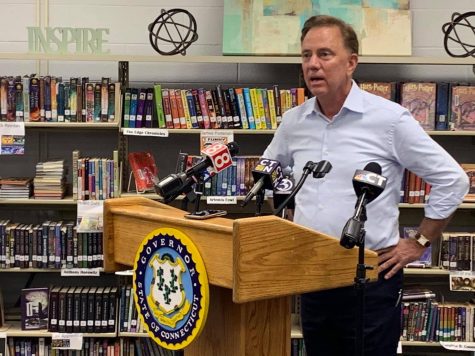COVID Forces Cuts to State Budget
August 24, 2020

Faced with a pandemic that has crippled Connecticut and the nation’s economy, Governor Ned Lamont must now address a state budget that is projected to lose $3 billion.
According to the state’s Office of Policy and Management, the effects of not attending to such a large budget deficit are severe.
“Our state economy is showing signs of recovery from the devastating effects of the COVID-19 pandemic,” State Comptroller Kevin Lembo stated in an interview with CT Mirror. “But without a significant investment from the federal government, those gains may slip away, and Connecticut families and businesses will suffer.”
Lembo has implored Congress to replace revenues lost by states and municipalities in order to prevent cuts to social service programs.
However, budget cuts are beginning to take hold. Office of Policy and Management Secretary Melissa McCaw shared last month that UConn Health, faced with a budget shortfall, was forced to cancel elective surgeries and other procedures in the spring.
Connecticut hospitals estimate they’ve lost around $ 1.4 billion since the start of the pandemic and have asked the state government for $450 million to recoup losses; thus far, Lamont has committed to $100 million. The nursing home industry is also facing financial lows and is requesting $300 million in extra funds and tax deferral from the Lamont Administration. As of yet, a response has not been made.
With no federal assistance expected, the Lamont administration has looked for other ways to make up the budget deficit.
Last week, Lamont directed state agencies to explore ways to reduce spending by 10 percent or more in the next two fiscal years. In addition, McCaw, Lamont’s budget director, ordered state agencies not to propose new or expanded programs while also asking for “responsible proposals for restructuring and reducing municipal aid and Medicaid-funded programs.”
The directives made by Lamont and McCaw have been met with resistance, as Democratic legislators are hesitant to cut funding for Medicaid and other social safety net programs.
“Connecticut is hurting, it’s hurting dramatically. We cannot afford to hurt it anymore,” state representative Toni Walker, D-New Haven, said.
Earlier this year, McCaw stated that the Lamont Administration would work with state houses to find $400 million in spending cuts next fiscal year; the administration also hinted at talks with state labor unions for possible concessions. However, the unions have been non-committal and would rather Lamont show focus on raising income taxes on corporations.
At odds with the direction of the Lamont administration, some within the Democratic caucus are instead calling for more government investment in social services.
“Government needs to focus more during this crisis on helping society’s most vulnerable,” State Senator, Saul Anwar, D-South Windsor, stated. “Diet during disasters is equal to death. Our realities have changed. We have to invest and rebuild.”



